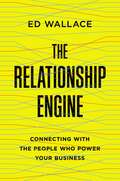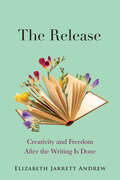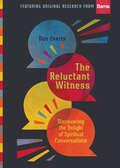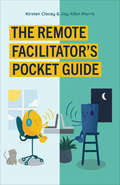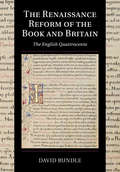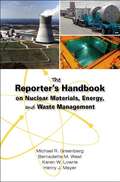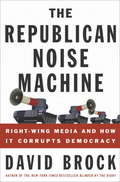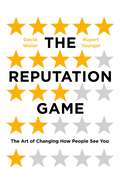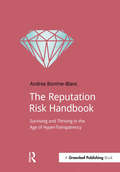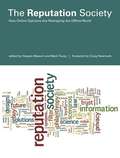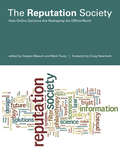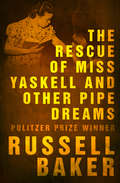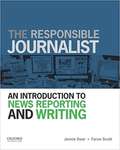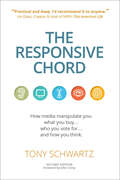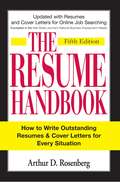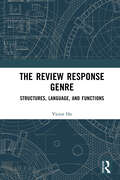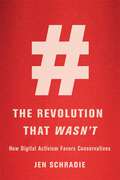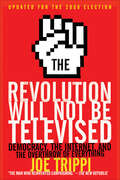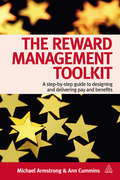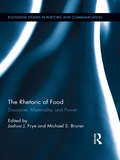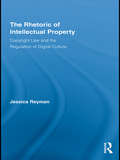- Table View
- List View
The Relationship Engine: Connecting with the People Who Power Your Business
by Ed WallaceRelationships hold companies together and fuel future growth. From connecting with customers to forging high-performing teams, success depends on everyone working well together. Yet many leaders prioritize potential relationships and take established ones for granted. They shouldn't. Research reveals that these core relationships are often the weakest...and can prove more vital than missed networking opportunities.Whether working with employees or associates, vendors or customers, The Relationship Engine gives you the tools you need to become an intentional, masterful relationship-builder. The book helps you establish common ground, focus on collaboration instead of command, put people before process, demonstrate worthy intent, and make every interaction matter. This insightful and practical guide includes:A powerful RQ Assessment designed to measure and evaluate business relationshipsA Relational Agility Action PlannerLateral and vertical relationship strategy templatesAnd moreEven the best-laid strategic plans are worthless without caring, real-life connections. It's time to invest in the bonds that will drive sustainable success.
The Release: Creativity and Freedom After the Writing Is Done
by Elizabeth Jarrett AndrewThe release is the stage when writers share the soul of their project—its gift. Here’s how to thrive and best serve your work once the writing is done.In The Release, award-winning author and teacher Elizabeth Jarrett Andrew invites writers to lift their heads out of the product-oriented sandbox and find an alternative way to play. By returning writers to their original delight and guiding them in an ongoing creative practice, Andrew helps form habits of mind, heart, and body to support a project’s final flourishing, free from the burdens of seeking validation and measuring worth.With the same skill and compassion she brought to her other resources for writers—Writing the Sacred Journey: The Art and Practice of Spiritual Memoir and Living Revision: A Writer's Craft as Spiritual Practice—Andrew writes with deep empathy for the emotional journey when a work is done, through celebration and grief, decisions around publication, the angst of receiving negative feedback or rejection, and the sometimes surprising challenges that come with success.Anyone—amateurs and professionals alike, those who intend to publish and those who do not, those with book-length manuscripts and those with haiku written on paper scraps—can do this practice. This book is for anyone who wants to release their work with love.
The Reluctant Witness: Discovering the Delight of Spiritual Conversations (Lutheran Hour Ministries Resources)
by Don EvertsNew research finds that Christians are less involved in spiritual conversations today than we were twenty-five years ago. As society has changed, it seems we have become more uncomfortable talking with people about our faith. We are reluctant conversationalists. The reality is that many of our churches and communities are shrinking instead of growing. What can we do about this? Don Everts, himself a reluctant witness, grew up assuming that spiritual conversations are always painful and awkward. But after falling into one spiritual conversation after another, he was surprised to discover that they aren't. Don's surprising—and sometimes embarrassing—stories affirm what Scripture and the latest research reveal: spiritual conversations can actually be a delight. Unpacking what God's Word says about spiritual conversations and digging into the habits of eager conversationalists, Everts describes what we can learn from Christians who are still talking about their faith. With original research from the Barna Group and Lutheran Hour Ministries on spiritual conversations in the digital age, this book offers fresh insights and best practices for fruitful everyday conversations.
The Remote Facilitator's Pocket Guide: How Local Businesses Are Beating the Global Competition
by Kirsten Clacey Jay-Allen MorrisThis approach to remote facilitation makes virtual meetings powerful means of collaboration using proven techniques to accommodate a diversity of cultures, locations, and personalities.Many people struggle with remote meetings: a cocktail of factors, such as technical barriers and invisible group norms, increase the uncertainty and risk of the already vulnerable task of collaborating and sharing ideas. When remote meetings go badly, they go really badly. Few things feel as lonely and intimidating as speaking to a screen with unreadable faces staring back in silence. This book will help you improve the quality of your remote meetings. With a little awareness, some planning, and some practice, you can make your remote meetings an effective, engaging, and powerful mechanism for collaboration within your organization. This book is for anyone seeking to get more value from remote meetings. Whether you're a seasoned facilitator, a new facilitator, or someone hoping to improve team meetings, you will be empowered with principles and actionable methods to enhance your organization's effectiveness.
The Renaissance Reform of the Book and Britain: The English Quattrocento (Cambridge Studies in Palaeography and Codicology #17)
by David RundleWhat has fifteenth-century England to do with the Renaissance? By challenging accepted notions of 'medieval' and 'early modern' David Rundle proposes a new understanding of English engagement with the Renaissance. He does so by focussing on one central element of the humanist agenda - the reform of the script and of the book more generally - to demonstrate a tradition of engagement from the 1430s into the early sixteenth century. Introducing a cast-list of scribes and collectors who are not only English and Italian but also Scottish, Dutch and German, this study sheds light on the cosmopolitanism central to the success of the humanist agenda. Questioning accepted narratives of the slow spread of the Renaissance from Italy to other parts of Europe, Rundle suggests new possibilities for the fields of manuscript studies and the study of Renaissance humanism.
The Reporter's Handbook on Nuclear Materials, Energy & Waste Management
by Michael R. Greenberg Bernadette M. West Karen W. Lowrie Henry J. MayerAn essential reference for journalists, activists, and students, this book presents scientifically accurate and accessible overviews of 24 of the most important issues in the nuclear realm, including: health effects, nuclear safety and engineering, TMI and Chernobyl, nuclear medicine, food irradiation, transport of nuclear materials, spent fuel, nuclear weapons, global warming. Each "brief" is based on interviews with named scientists, engineers, or administrators in a nuclear specialty, and each has been reviewed by a team of independent experts. The objective is not to make a case for or against nuclear-related technologies, but rather to provide definitive background information. (The approach is based on that of The Reporter's Environmental Handbook, published in 1988, which won a special award for journalism from the Sigma Delta Chi Society of professional journalists.)Other features of the book include: a glossary of hundreds of terms, an introduction to risk assessment, environmental and economic impacts, and public perceptions, an article by an experienced reporter with recommendations about how to cover nuclear issues, quick guides to the history of nuclear power in the United States, important federal legislation and regulations, nuclear position statements, and key organizations, print and electronic resources.
The Reporter's Handbook on Nuclear Materials, Energy, and Waste Management
by Michael R. Greenberg Bernadette M. West Karen W. Lowrie Henry J. MayerAn essential reference for journalists, activists, and students, this book presents scientifically accurate and accessible overviews of 24 of the most important issues in the nuclear realm, including: health effects, nuclear safety and engineering, TMI and Chernobyl, nuclear medicine, food irradiation, transport of nuclear materials, spent fuel, nuclear weapons, global warming.Each "brief" is based on interviews with named scientists, engineers, or administrators in a nuclear specialty, and each has been reviewed by a team of independent experts. The objective is not to make a case for or against nuclear-related technologies, but rather to provide definitive background information. (The approach is based on that of The Reporter's Environmental Handbook, published in 1988, which won a special award for journalism from the Sigma Delta Chi Society of professional journalists.)Other features of the book include: a glossary of hundreds of terms, an introduction to risk assessment, environmental and economic impacts, and public perceptions, an article by an experienced reporter with recommendations about how to cover nuclear issues, quick guides to the history of nuclear power in the United States, important federal legislation and regulations, nuclear position statements, and key organizations, print and electronic resources.
The Republican Noise Machine: Right-Wing Media and How It Corrupts Democracy
by David BrockIn The Republican Noise Machine, David Brock skillfully documents perhaps the most important but least understood political development of the last thirty years: how the Republican Right has won political power and hijacked public discourse in the United States.Brock, a former right-wing insider and the author of the New York Times bestseller Blinded by the Right, uses his keen understanding of the strategies, tactics, financing, and personalities of the American right wing to demonstrate how the once-fringe phenomenon of right-wing media has all but subsumed the regular media conversation, shaped the national consciousness, and turned American politics sharply to the right.Brock documents how in the last several decades the GOP built a powerful media machine--newspapers and magazines, think tanks, talk radio networks, op-ed columnists, the FOX News Channel, Christian Right broadcasting, book publishers, and high-traffic internet sites--to sell conservatism to the public and discredit its opponents. This unabashedly biased multibillion-dollar communications empire disregards journalistic ethics and universal standards of fairness and accuracy, manufacturing "news" that is often bought and paid for by a tight network of corporate-backed foundations and old family fortunes. By dissecting the appeal, techniques, and reach of the booming right-wing media market, Brock demonstrates that it is largely based on bigotry, ignorance, and emotional manipulation closely tied to America’s longstanding cultural divisions and the buying power of anti-intellectual traditionalists. From the disputed 2000 presidential election to the war with Iraq to the political battles of 2004, Brock's penetrating analysis of right-wing media theories and methodology reveals that the Republican Right views the media as an extension of a broader struggle for political power. By tracing the political impact of right-wing media, Brock shows how disproportionate conservative influence in the media is integrally linked to the Republican Right’s current domination of all three branches of government, to the propping up of the Bush administration, and to the inability of Democrats to voice their opposition to this political sea change or to compete on an even playing field.As only an ex-conservative intimately familiar with the imperatives of the American right wing could, David Brock suggests ways in which concerned Americans can begin to redress the conservative ascendancy and cut through the propagandistic fog. Writing with verve and deep insight, he reaches far beyond typical bromides about media bias to produce an invaluable account of the rise of right-wing media and its political consequences. Promising to be the political book of the year, The Republican Noise Machine will transform the raging yet heretofore unsatisfying debate over the politics of the media for years to come.
The Reputation Game: The Art of Changing How People See You
by David Waller Rupert YoungerIt&’s a game you&’re already playing, whether you like it or not. You can choose to ignore it and remain at the mercy of what others say about you, or you can take the time to learn how it works. For those who do the potential benefits are unlimited. Through pioneering research and interviews with a host of major figures ranging from Jay-Z and LinkedIn co-founder Reid Hoffman to Bernie Madoff and Man Booker prize-winning Hilary Mantel, Waller and Younger reveal the key mechanisms that make and remake our reputations, providing the essential guide to the most important game in business and in life.
The Reputation Risk Handbook: Surviving and Thriving in the Age of Hyper-Transparency
by Andrea Bonime-BlancThis book will show you how to build a sustainable reputation risk management framework and how to handle your next reputation risk crisis. It will help you identify ways in which reputation risk can impact bottom line, and then show you how to set up a framework for turning that risk into an opportunity for good, sustainable business. Reputation risk is a strategic risk and a potentially material risk, all the more so in the "age of hyper-transparency". This needs to be clearly understood by both management and boards of directors so that the people tasked with reputation risk have the support they need to align their reputation risk management with business strategy and planning. The Reputation Risk Handbook provides a clear framework to identify, manage and resolve reputation risk, including: a clear description of what reputation risk is and how it fits within the pantheon of corporate and institutional risk and strategic management; a practical process for creating early warning systems and on-going management and monitoring of reputation risks; techniques for aligning reputation risk management with business strategy and business planning; several case studies, including examples of when reputation risk management has gone wrong; examples of how to manage specific reputation risks successfully or deal with a reputation risk crisis. The Reputation Risk Handbook is not just for practitioners – those who manage risk and reputation directly – but for those who have oversight of risk management – namely boards, their committees and the c-suite. In addition to a framework for practitioners, the book provides specific suggestions for boards, including questions to ask management and what to look for within their organizations.
The Reputation Society: How Online Opinions Are Reshaping the Offline World
by Mark Tovey Hassan MasumIn making decisions, we often seek advice. Online, we check Amazon recommendations, eBay vendors' histories, TripAdvisor ratings, and even our elected representatives' voting records. These online reputation systems serve as filters for information overload. In this book, experts discuss the benefits and risks of such online tools. The contributors offer expert perspectives that range from philanthropy and open access to science and law, addressing reputation and reputation systems in theory and practice. Properly designed reputation systems, they argue, have the potential to create a "reputation society," reshaping society for the better by promoting accountability through the mediated judgments of billions of people. Effective design can also steer systems away from the pitfalls of online opinion sharing by motivating truth-telling, protecting personal privacy, and discouraging digital vigilantism.
The Reputation Society: How Online Opinions Are Reshaping the Offline World (The Information Society Series)
by Mark Tovey edited by Hassan MasumExperts discuss the benefits and risks of online reputation systems.In making decisions, we often seek advice. Online, we check Amazon recommendations, eBay vendors' histories, TripAdvisor ratings, and even our elected representatives' voting records. These online reputation systems serve as filters for information overload. In this book, experts discuss the benefits and risks of such online tools.The contributors offer expert perspectives that range from philanthropy and open access to science and law, addressing reputation systems in theory and practice. Properly designed reputation systems, they argue, have the potential to create a “reputation society,” reshaping society for the better by promoting accountability through the mediated judgments of billions of people. Effective design can also steer systems away from the pitfalls of online opinion sharing by motivating truth-telling, protecting personal privacy, and discouraging digital vigilantism.Contributors Madeline Ashby, Jamais Cascio, John Henry Clippinger, Chrysanthos Dellarocas, Cory Doctorow, Randy Farmer, Eric Goldman, Victor Henning, Anthony Hoffmann, Jason Hoyt, Luca Iandoli, Josh Introne, Mark Klein, Mari Kuraishi, Cliff Lampe, Paolo Massa, Hassan Masum, Marc Maxson, Craig Newmark, Michael Nielsen, Lucio Picci, Jan Reichelt, Alex Steffen, Lior Strahilevitz, Mark Tovey, John Whitfield, John Willinsky, Yi-Cheng Zhang, Michael Zimmer
The Rescue of Miss Yaskell and Other Pipe Dreams
by Russell BakerHumorous essays by the Pulitzer Prize–winning “supreme satirist” (The Washington Post Book World). This collection of more than a hundred anecdotes and essays from the legendary journalist, New York Times columnist, and author of the bestselling memoir Growing Up offers wise and sharply witty reflections on an extraordinary array of topics, ranging from youth, wealth, the media, and the joy of anger to the difference between “dinner” and “supper.” “Russell Baker is the Alka-Seltzer of the American experience. . . . The most effective comic relief available for the agonizing absurdities we encounter every day.” —Houston Chronicle “When it comes to satire of a controlled but effervescent ferocity, nobody can touch Baker.” —The Washington Post Book World
The Research Interview: Reflective Practice and Reflexivity in Research Processes
by Steve MannResearch and Qualitative Interviews brings into focus the decisions that the interviewer faces by taking a data-led approach in order to open up choices and decisions in the process of planning for, managing, analysing and representing interviews. The chapters concentrate on the real-time, moment-by-moment nature of interview management and interaction. A key feature of the book is the inclusion of reflexive vignettes that foreground the voices and experience of qualitative researchers (both novices and more expert practitioners). The vignettes demonstrate the importance of reflecting on and learning from interactional experience. In addition, the book provides an overview of different types of interviews, commenting on the orientation and make-up of each type. Overall, this book encourages reflective thinking about the use of research interviews. It distinguishes between reflection, reflective practice and reflexivity. All the chapters focus on recurring choices, dilemmas and puzzles; offering advice in opening out and engaging with these aspects of the research interview.
The Responsible Journalist: An Introduction to News Reporting and Writing
by Jennie Dear Faron ScottThe Responsible Journalist: An Introduction to News Reporting and Writing teaches reporting and writing skills from a liberal arts perspective with the understanding that at its heart, journalism is about public service. The text presents journalism as an approach--one that involves careful thought, ethical decision-making, skepticism, an attention to accuracy and an emphasis on truthfulness.
The Responsive Chord: How Media Manipulate You: What You Buy . . . Who You Vote For . . . and How You Think.
by Tony SchwartzThe classic work on how media affects us by the man who helped create the most famous political ad in television history.Tony Schwartz drew on his unparalleled experience in the communications industry to give us The Responsive Chord, an engaging read and one of the seminal books on media. Famed for his “Daisy” campaign ad and a pioneering anti-tobacco PSA, Schwartz came to understand that most advertisers, politicians, and educators?in fact, almost all of us?use a model of communication long outmoded by the coming of electronic media: a model which has made us blind to many of the inner workings of modern communication.In The Responsive Chord, he puts forth the resonance principle—that the meaning of an ad (or any other piece of communication) is not present in the ad itself but rather in how the ad relates to the vast array of knowledge and associations already held in the mind of the viewer, both factual and emotional. Thus, audience members do not merely digest a message; they are an essential force in creating it. Schwartz guides us through the many fascinating consequences. The implications for anyone looking to impart a message or influence decisions are enormous.With so many people now getting their information through social media and “fake news” sites, it is crucial that we understand the strong forces by which these outlets act upon us and, yes, manipulate our ideas and actions. The Responsive Chord reveals these forces in a compelling, revealing read.“I read The Responsive Chord as a freshman in college and it affected everything I've ever made since. Its message is practical and deep. I'd recommend it to anyone.”?Ira Glass, creator and host of NPR's This American Life“Maybe reading this book will prepare us to think more critically about the way social media is used on, and against, us today.”?Douglas Rushkoff, author, Program or Be Programmed
The Resume Handbook
by Arthur D RosenbergOnly one interview is granted for every 250 resumes receivedWith The Resume Handbook, you can make sure yours is the one on top! Your resume has one purpose: to obtain an interview. In order to create an interview-winning resume, you need to know what to say and how to say it - and The Resume Handbook will show you how.The book focuses on three major objectives:Organization: Give your resume structure and visual impact to immediately capture attentionThe Basics: What to include and what to leave out so you don't turn off the readerAccomplishments: Present yourself as a highly motivated achieverNow in its fifth edition, The Resume Handbook features thirty-seven of the best resumes ever written and provides no-nonsense advice for making your resume stand out from the crowd.
The Resume Handbook
by Arthur D. RosenbergNow in its fourth edition, this handbook has been updated to meet the needs of today's job seekers. With all-new resumes and cover letters, it also includes sections on new technology and hottest trends.
The Resume Handbook: How to Write Outstanding Resumes and Cover Letters for Every Situation
by Arthur D RosenbergOnly one interview is granted for every 250 resumes receivedWith The Resume Handbook, you can make sure yours is the one on top! Your resume has one purpose: to obtain an interview. In order to create an interview-winning resume, you need to know what to say and how to say it - and The Resume Handbook will show you how.The book focuses on three major objectives:Organization: Give your resume structure and visual impact to immediately capture attentionThe Basics: What to include and what to leave out so you don't turn off the readerAccomplishments: Present yourself as a highly motivated achieverNow in its fifth edition, The Resume Handbook features thirty-seven of the best resumes ever written and provides no-nonsense advice for making your resume stand out from the crowd.
The Review Response Genre: Structures, Language, and Functions
by Victor HoExpanding the scope of the metadiscourse construct, Ho offers a comprehensive analysis of the online review response genre using hotel managers' responses to negative reviews posted by dissatisfied customers on TripAdvisor. He adopts a robust research methodology that involves both quantitative and qualitative analyses of three different types of data: managerial responses to negative comments, questionnaire responses from dissatisfied customers who wrote the reviews, and interview responses from hotel managers who wrote the responses. By drawing upon the genre theory and the construct of rapport and metadiscourse, the analysis shows that hotel management’s attempts at service recovery can be materialized through the move structures of the managerial responses, and the strategies used in managing rapport with dissatisfied customers and in persuading both existing and potential customers to purchase accommodation services from the hotels. An essential reading for students and researchers of pragmatics and professional communication, along with anyone interested in the role of language in persuading customers, neutralizing criticisms, and managing interpersonal relationships, particularly in the context of open forums online.
The Revolution That Wasn’t: How Digital Activism Favors Conservatives
by Jen SchradieIn this counterintuitive study of digital democracy, Jen Schradie shows how the web has become another weapon in the arsenal of the powerful, and a potent weapon for conservative activists. Rather than leveling the playing field, the internet has tilted it in favor of the Right, where only the most sophisticated and well-funded players can compete.
The Revolution Will Not Be Televised: Democracy, the Internet, and the Overthrow of Everything
by Joe TrippiIn a blend of Wired magazine and The Boys on the Bus, the man who invented Internet politics tells the story of how it was done and reveals how every sector can benefit from tech revolution.Campaign manager Joe Trippi, who signed on to run Howard Dean’s campaign when there was less than $100,000 in the till and fewer than 500 people involved, transformed the most obsure candidate in the field into the Democratic frontrunner and all-but-coronated party nominee in less than a year. The secret of Trippi’s off-the-charts success: a revolutionary use of the Internet, and an impassioned, contagious desire to overthrow politics-as-usual. Before Dean knew it, he had a groundswell of 600,000 Americans behind him, was leading in every poll, and had raised $45 million—more money than any Democrat in history. We now know that unprecedented fundraising, unheard-of numbers of people checking in on the Internet, chatting on blogs, reaching out to their fellow voters and showing up at house parties really can compete with—and in so many ways exceed— the more traditional approaches to winning in politics. But the why’s and how’s leave much fertile ground to plow, and for the first time, Trippi, an icon to all the Dean supporters he energized, is sharing his lessons learned, along with colorful behind-the-scenes stories from the campaign trail. Perhaps lulled by the bust of the dot.com boom, many have dismissed the Internet as old news. But if Dean’s campaign wasn’t enough of a wake-up call, this book is: Trippi reveals just how the sleeping power of technology can be harnessed, and illuminates how every organization and individual in America can benefit from the tidal wave of change on the horizon.
The Reward Management Toolkit: A Step-By-Step Guide to Designing and Delivering Pay and Benefits
by Michael Armstrong Ann ChapmanDeciding how to effectively reward staff is one of the most tricky and contentious areas in people management. Getting it right can help promote a motivated workforce, and significantly improve recruitment and retention. But how do you decided what pay scale is suitable for which job and how do you design reward packages which recognise contribution and encourage employees?The Reward Management Toolkit provides practical, step-by-step guidance on designing and delivering rewards across organizations. In each tool the authors describe what the tool will achieve and provide guidance on when it is appropriate to implement. Each tool is supported by questionnaires, checklists and opinion surveys which can be used as the basis for analysis, discussions in workshops, project teams and focus groups. These tools include: the design, development and implementation process, strategic reward, job evaluation, market rate analysis, benefits options, including flexible benefits and the management and evaluation of reward systems. Online supporting resources include figures and templates such as checklists and questionnaires.
The Rhetoric of Food: Discourse, Materiality, and Power (Routledge Studies in Rhetoric and Communication)
by Joshua J. Frye Michael S. BrunerThis book focuses on the rhetoric of food and the power dimensions that intersect this most fundamental but increasingly popular area of ideology and practice, including politics, culture, lifestyle, identity, advertising, environment, and economy. The essays visit a rich variety of dominant discourses and material practices through a range of media, channels, and settings including the White House, social movement rhetoric, televisual programming, urban gardens, farmers markets, domestic and international agriculture institutions, and popular culture. Rhetoricians address the cultural, political, and ecological motives and consequences of humans’ strategic symbolizing and attendant choice-making, visiting discourses and practices that have impact on our species in their producing, distributing, regulating, marketing, packaging, consuming, and talking about food. The essays in this book are representative of dominant and marginal discourses as well as perennial issues surrounding the rhetoric of food and include macro-, meso-, and micro-level analyses and case studies, from international neoliberal trade policies to media and social movement discourse to small group and interactional dynamics. This volume provides an excellent range and critical illumination of rhetoric’s role as both instrumental and constitutive force in food representations, and its symbolic and material effects.
The Rhetoric of Intellectual Property: Copyright Law and the Regulation of Digital Culture (Routledge Studies In Rhetoric And Communication Ser. #3)
by Jessica ReymanIn recent years we have witnessed a rising tension between the open architecture of the Internet and legal restrictions for online activities. The impact of digital recording technologies and distributed file sharing systems has forever changed the expectations of everyday users with regard to digital information. At the same time, however, U.S. Copyright Law has shown a decided trend toward more restrictions over what we are able to do with digital materials. As a result, a gap has emerged between the reality of copyright law and the social reality of our everyday activities. Through an analysis of the competing rhetorical frameworks about copyright regulation in a digital age, this book shows how the stories told by active parties in the debate shape our cultural understanding of what is and is not acceptable in the use of copyrighted works on digital networks. Reyman posits recent legal developments as sites of conflict between competing value systems in our culture: one of control, relying heavily on comparisons of intellectual property to physical property, and emphasizing ownership, theft, and piracy, and the other a value of community, implementing new concepts such as that of an intellectual "commons," and emphasizing exchange, collaboration, and responsibility to a public good.
